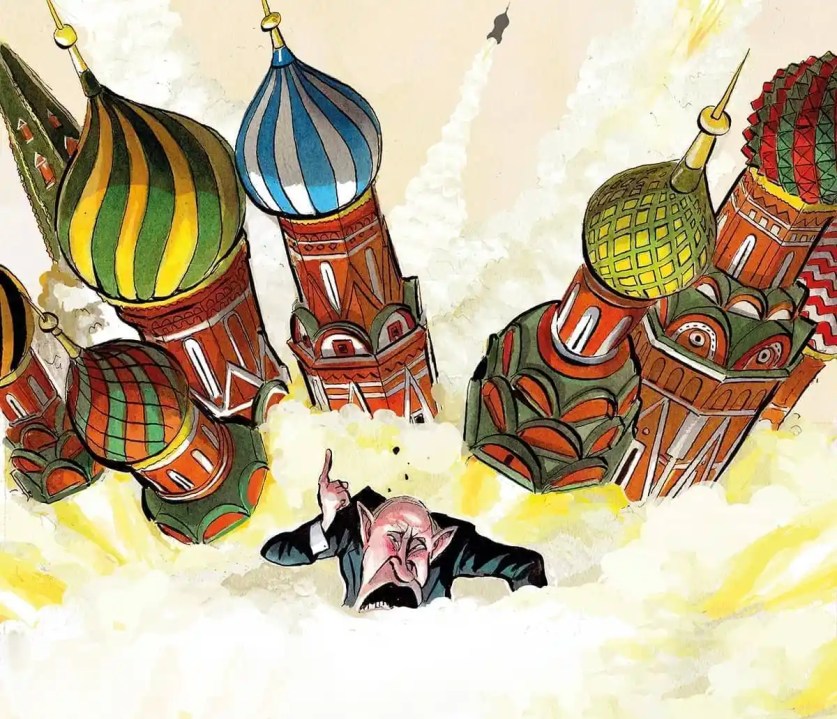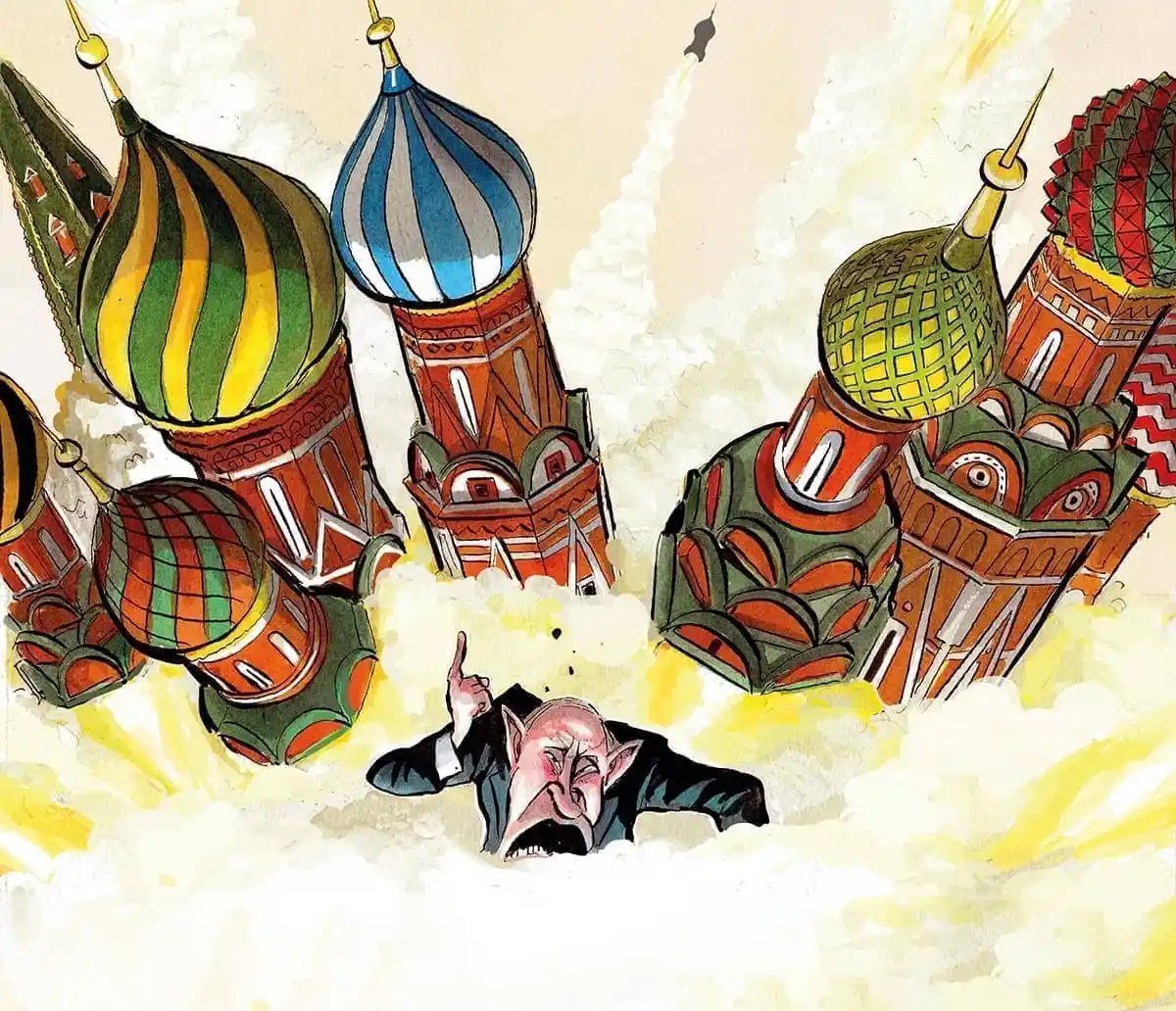It is almost as if Vladimir Putin doesn’t mean it when he claims to be open to peace talks with Ukraine. Having originally said they have ‘no preconditions’ on peace talks with Ukraine, the Russians are now throwing obstacles in their way, as their bluff is called.
As one US official told me, ‘we are not at all backing away from our support for Ukraine, but it is time to start at least thinking about endgames’
After US President Joe Biden, in a joint press conference on Thursday with French President Emmanuel Macron, made very vague suggestions of being ‘happy to sit down with Putin to see what he wants, has in mind,’ Kremlin spokesman Dmitri Peskov struck an uncompromising note in return: ‘what did President Biden say in fact? He said that negotiations are possible only after Putin leaves Ukraine.’ This, he added, was a condition Russia ‘obviously’ rejects, so ‘the special military operation is continuing.’
Yet Biden had actually simply said that he was ‘prepared to speak with Mr Putin if in fact there is an interest in him deciding he’s looking for a way to end the war’ and that ‘the rational way’ was for ‘Putin to pull out of Ukraine.’ This was hardly news, nor a firm precondition.
(Peskov may have been conflating Biden’s position that that expressed by German Chancellor Olaf Scholz who, in a phone conversation with Putin on Friday, apparently said that ‘that there must be a diplomatic solution as quickly as possible, which includes a withdrawal of Russian troops.’)
In the earlier months of the war, the West’s focus on supporting Ukraine and calling out the iniquities of the invasion meant that an easy and lazy connection was made between negotiations and appeasement. The stock response to any calls for dialogue was to assume that this would be bought at the price of Ukrainian territory and sovereignty.
This connection was reinforced by a Ukrainian government that was understandably concerned that the hint of early talks would encourage backsliding by those European countries least committed to the conflict.
This not only allowed Moscow to present itself perversely as the ‘responsible adult’ in its dealings with the Global South – where it is presenting the invasion as an ‘anti-colonial war‘ against a hegemonic America and its Ukrainian puppet – but also alarmed elements of the Western commentariat who were worried about the risk of spiralling escalation.
Increasingly, though, there are those within many western governments who, while seeing no grounds for any talks now, are growing concerned that their mantra of ‘the war will end when Kyiv says it ends’ ties their hands and overlooks the degree to which they themselves have interests at stake. As one US official told me, ‘we are not at all backing away from our support for Ukraine, but it is time to start at least thinking about endgames.’
Might such an endgame include some kind of compromise over Crimea, whose position most Western governments accept is in practical if not necessarily legal terms different from the other occupied territories? What sanctions might be negotiable in the name of peace? Such issues are hard to discuss when neither Kyiv nor Moscow seems willing to accept that there is any basis for any discussion.
Besides, while Foreign Minister Sergei Lavrov has complained that European countries are not offering concrete proposals to end the conflict, Peskov actually raised fresh obstacles to any such talks, demanding that the West recognise the ‘new territories’ annexed at the end of September.
There was absolutely no basis in international law for these annexations, carried out after spurious local referendums, and extending to territory Moscow did not control even at the high-water mark of its invasion. To make an acceptance of the annexations a precondition for talks will kill them off from the start
The irony is that Moscow’s ham-fisted response probably reflects its own concerns about what might happen if there is even a hint of room for negotiations.
On the one hand, many within the elite would beginning lobbying for the Kremlin to take whatever off-ramp it could. Although there is no question of any challenge to Putin, at least for now, there is widespread concern that the war is unwinnable on the battlefield and catastrophic on the home front. As a Russian commentator put it, ‘do we win Zaporizhzhia but lose our own country?’
More to the point, Putin attempts to justify growing totalitarianism rest in part on the claim that this has become an existential war for Russia, one in which there is no middle ground between patriots and traitors.
Biden, Macron, Scholz and any other would-be peacemakers are, for the moment, trapped between a Ukraine that feels it has momentum on the battlefield, and a Kremlin that feels its only chance for victory is if it can prolong the war long enough to outlast Kyiv and the West.








Comments